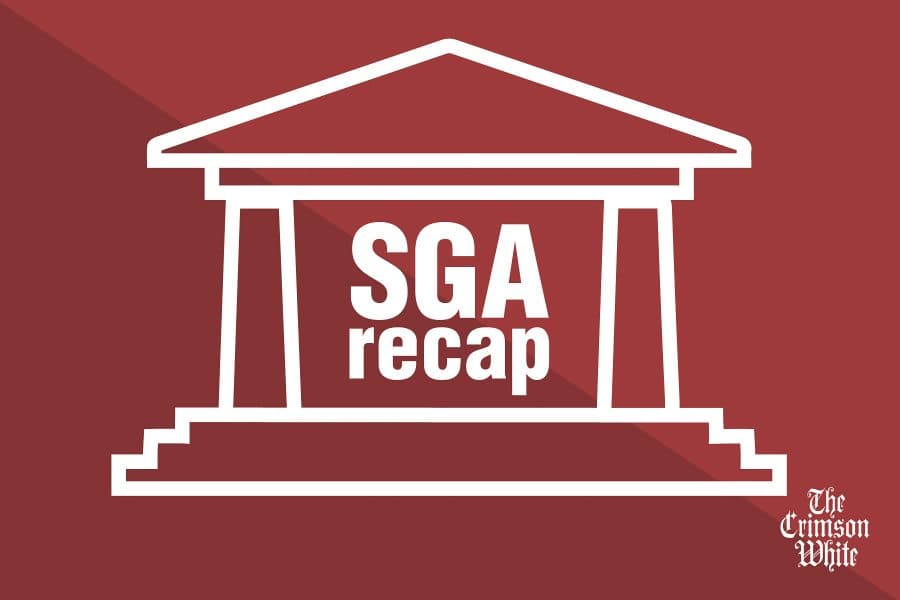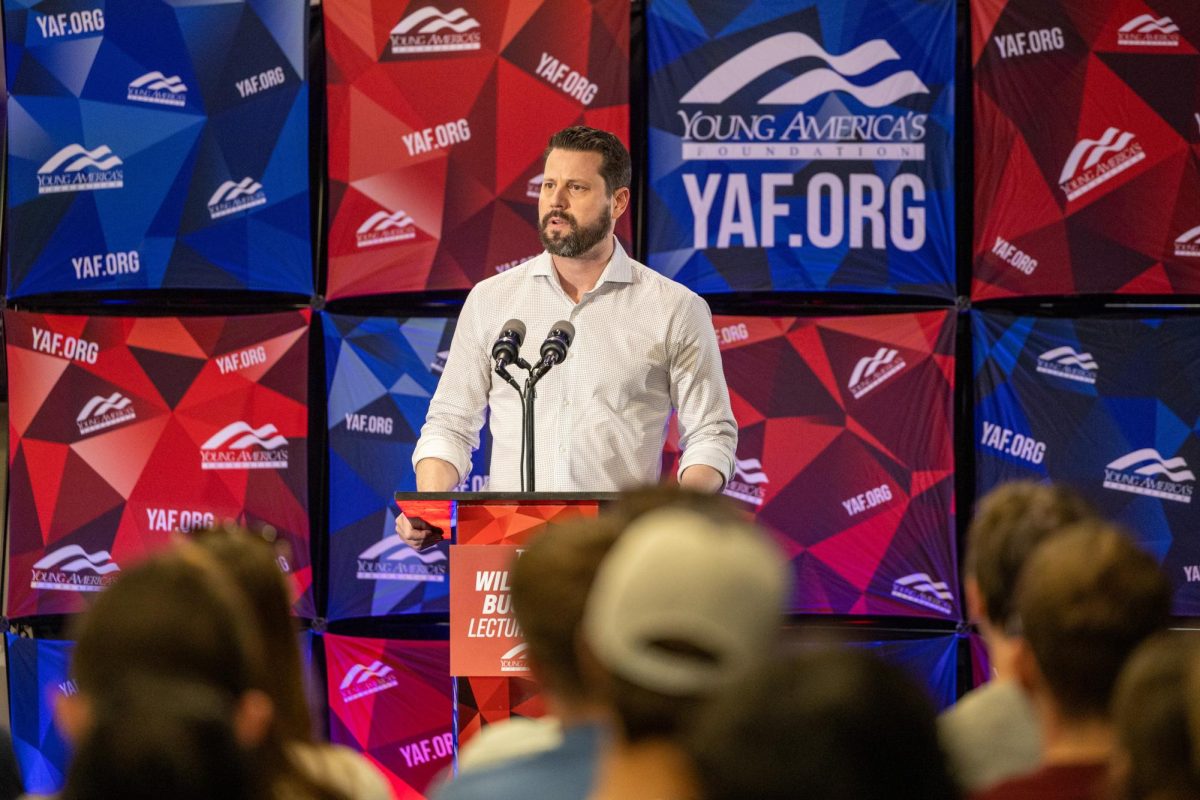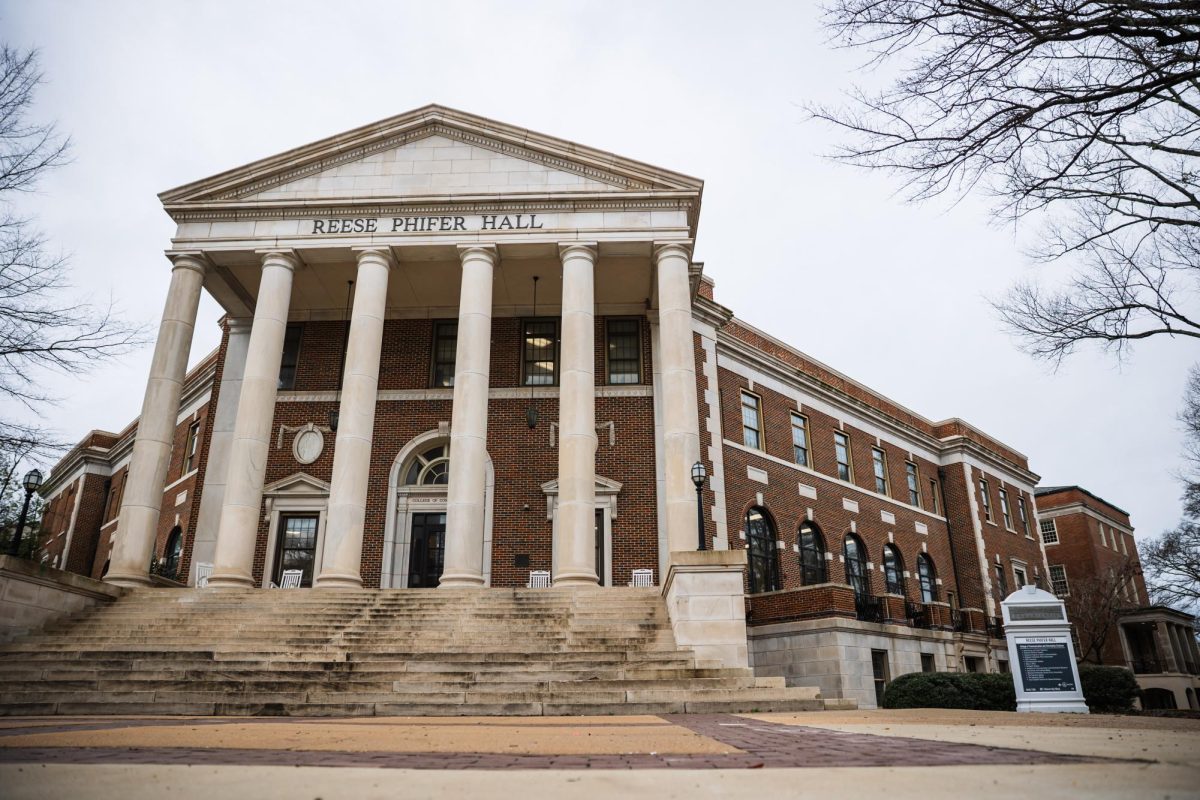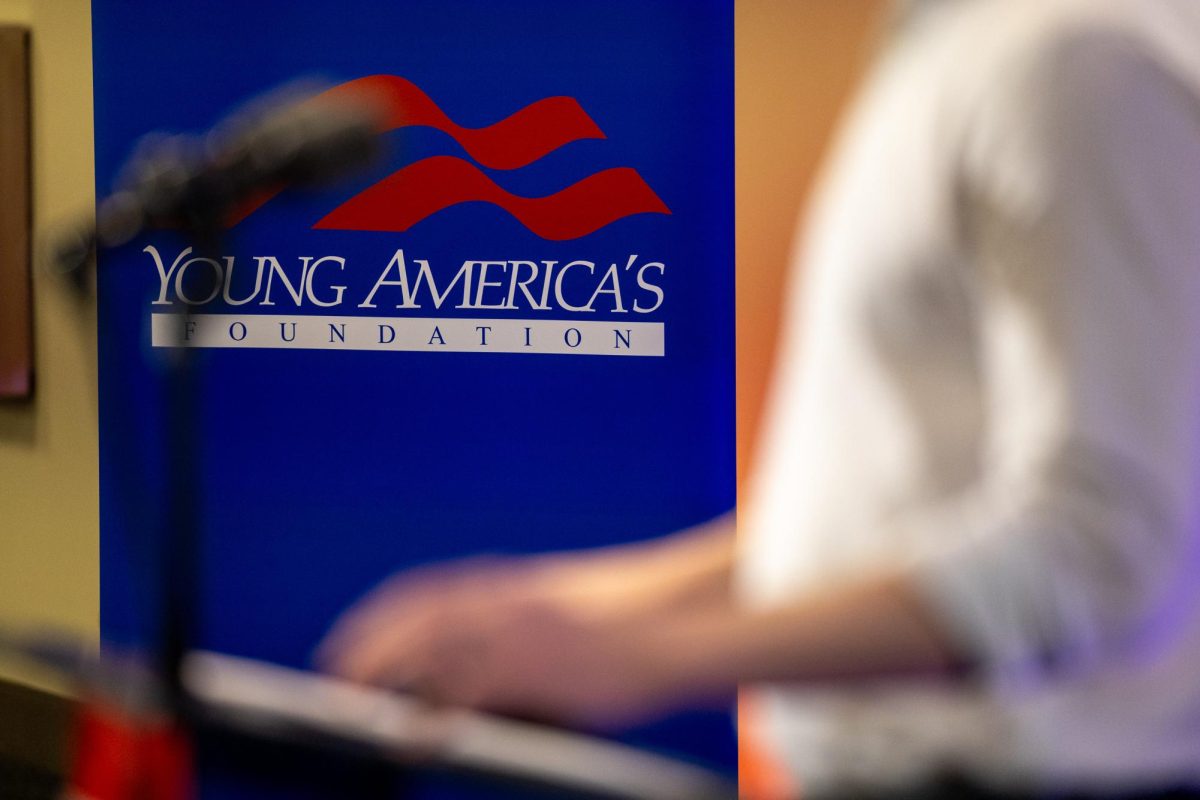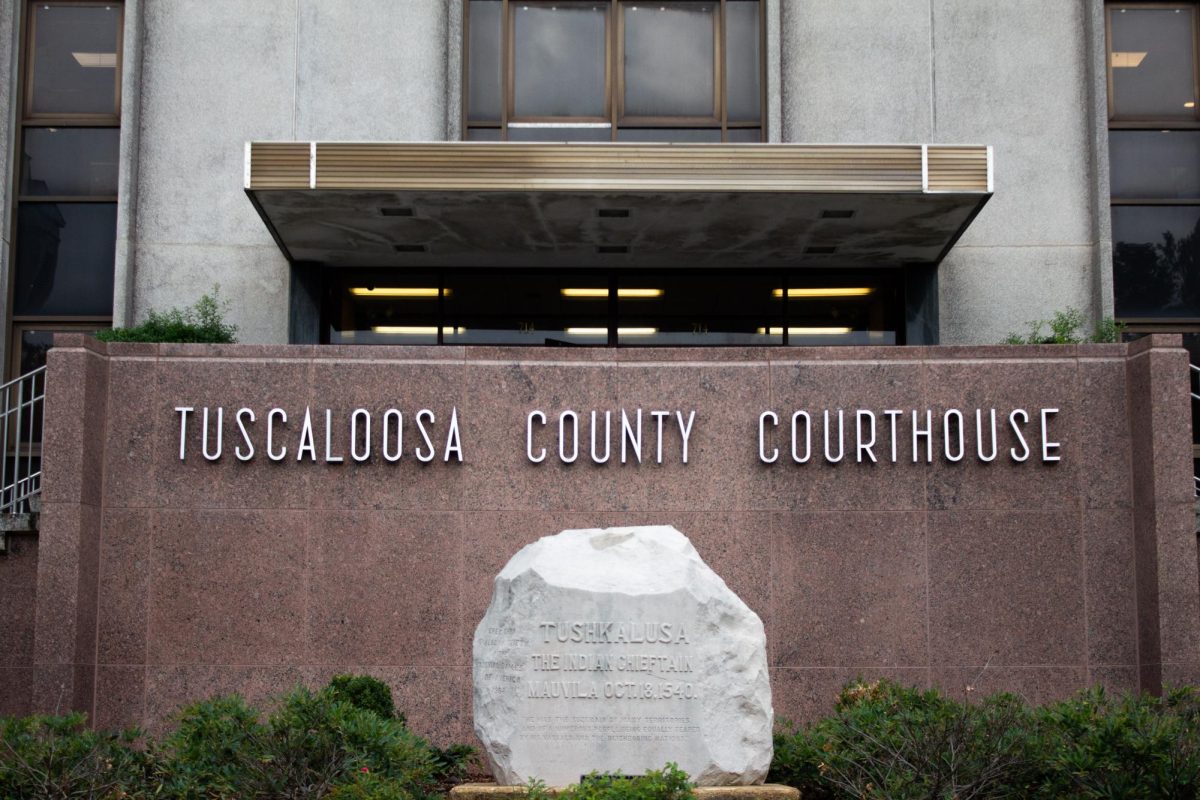The 2017-2018 SGA legislative session has officially ended. Throughout the year, an entire Elections Board announced their resignation, two different presidents served the student body and the Senate continued to pass legislation. Here are a number of key policies and events that occurred throughout the year.
1. UA Elections Board Resigns (August 2017)
The University’s entire SGA Elections Board resigned in August citing “a blatant disregard and disrespect for the rules during our last election cycle.” The board said SGA President Jared Hunter failed to comply with sanctions administered to him throughout his campaign. After sending their findings to the University’s Office of Student Conduct, the Elections Board was surprised to find Hunter would continue to serve as student body president. The Elections Board said, “We do not believe the Elections Board, in the current climate, to be a viable entity for ensuring genuinely fair elections.”
2. Bill B-03 (September 2017)
Senator Clay Gaddis introduced a bill to improve procedural integrity on Sept. 14. The bill passed one week later and helped expedite the process for the Senate when voting, while simultaneously addressing procedures deemed improper by the Parliamentarian of the Senate. The bill found that “immediate consideration of a resolution requires a motion to ‘Suspend the Rules,’ which is a powerful procedure that should, ideally be used only in odd circumstances.” Consequently the bill changed the procedure so that it acted in better accordance with Robert’s Rules of Order.
3. Resolution R-03 (September 2017)
Introduced by Senator Michael Smith to the Senate on Sept. 21, the resolution requesting The University of Alabama release records pertaining to campaign violations by Jared Hunter failed to pass. The resolution first argued that Jared Hunter’s records ought not to be protected by FERPA. According to the resolution Hunter waived his right to keep his records private when he filled out the 2017 Spring Candidacy Application. Smith, a junior majoring in economics and finance, was disappointed with the outcome.
“This is an instance that we have as a Student Government Association to promote transparency in the highest form, and we shirked our responsibilities, and that’s what happened today,” he said.
4. Resolution R-09 (November 2017)
Introduced by Senator Robert Pendley on Nov. 2, the resolution in support of working with University housing and residential communities and the Office of Fraternity and Sorority Life to prevent opioid overdoses, was passed by the Senate. The resolution encourages the distribution of the drug Naloxone to reverse the harmful effects of a drug overdose. Pendley, a third-year law student, said distributing the drug to residence halls “is purely a response to an overdose.”
5. Act A-13 (November 2017)
The Sexual Assault Forensic Examiners (SAFE) Act was introduced in the Senate on Nov. 9 and subsequently passed the following week. The act, which was hailed as one of the largest accomplishments during Hunter’s term, acknowledged sexual assault as a growing problem on college campuses throughout the nation and contributed $250 from the Senate to the SAFE center in order to help bring the center Tuscaloosa.
6. Motion to Compel, Elections Board Releases Seemingly Inconsistent Election Results (November 2017)
The SGA released seemingly inconsistent results regarding the special Senate election on Nov. 15 after being forced to do so by the Student Judiciary. Ryan Truitt, a junior majoring in management information systems, filed a “Motion to Compel,” urging the judicial branch of the SGA to release the ruling and requiring the Elections Board to claim full responsibility. In each of the special elections, more votes were cast than there were voters, resulting in 128 more votes than voters in the College of Education election and 53 more votes than voters present in the Graduate School election. Chairman of the Elections Board, Ethan Fialkow said that this occurred because students were given the chance to vote for multiple candidates.
7. SGA President Arrested, Resigns (January 2018)
SGA President Jared Hunter’s presidency ended as it began – in violations. Hunter, a senior majoring in political science and economics, was arrested for driving under the influence on Jan. 21 after crashing head-on into a vehicle and resigned the following day. Before Hunter filed his resignation, Senator Robert Pendley told the Crimson White, “Everyone I have talked to does not consider Jared Hunter to be president anymore. It is only a matter of making it official.”
8. Resolution R-14 (January 2018)
Senator Marissa Navarro’s resolution promoting transparency between the SGA and the student body was passed on Jan. 25. The resolution targeted a slow and inefficient website. According to the resolution, “It should be the duty of the Student Government Association to promote transparency,” and demanded deadlines for publication of information.
9. Bill B-09 & 10 (January 2018)
Senator Robert Pendley re-introduced his failed 2016 bill to increase efficiency, accountability and oversight of the Student Government Association on Jan. 25, and it passed on Feb. 15. Pendley’s bill gave permission for the creation of a Senate Ethics and Oversight Committee that would review projects exceeding a cost of $700, hear ethical issues such as complains against any SGA officer and issue penalties to Senate members for ethical infractions when necessary. The following week, Senator Harrison Adams introduced Bill B-10 to increase oversight and expand the office of the Attorney General to investigate “matters of ethical malfeasance by any SGA member,” not making any mention of working with the Senate Ethics and Oversight Committee.
9. Constitutional Amendment C-02 (February 2018)
Senator Harrison Adams introduced Constitutional Amendment C-02, which advocated for SNAM forgiveness for students serving within the SGA. The amendment, which formerly required students to be in good academic and disciplinary standing with the University before and during their term, now allows students in “mitigating circumstances” to request a review for of their violations in order to continue holding office.
10. Constitutional Amendment C-03 (February 2018)
Senator Baily Martin, a junior majoring in international studies, political science and Spanish, and Chief Justice Ellie Bowers, a senior majoring in political science and history, fought against a 20-minute barrage of question on the Senate floor Feb. 8 before having one of the most controversial pieces of legislation of the year sent to the Oversight Committee. The amendment, which increases the number of Elections Board members from 6 to 12, was passed one week later with the added compromise that six members of the board be selected by a panel of outgoing SGA members and the rest be selected by the vice president of Student Life.
11. Act A-17 (February 2018)
On March 1 Senator Darby McQueen, a senior majoring in social work, introduced Act A-17 to establish a scholarship fund for Adapted Athletics. The act passed at the Senate’s final meeting on March 29 and established the possibility for an Adapted Athletics scholarship by increasing student tuition by $3 per semester, should the UA administration approve it.
12. Election of SGA President Price McGiffert (March 2018)
On March 6, fewer than 30 percent of students on campus voted in the presidential election, eventually electing Price McGiffert as SGA President by a 40-point margin. McGiffert, a junior majoring in civil engineering, “was not supported by any certain organization at The University of Alabama.” McGiffert took office April 3 and said he wants to serve the student body throughout his term with a transparent administration. “I want to be as accessible as I possibly can to every student,” he said.



